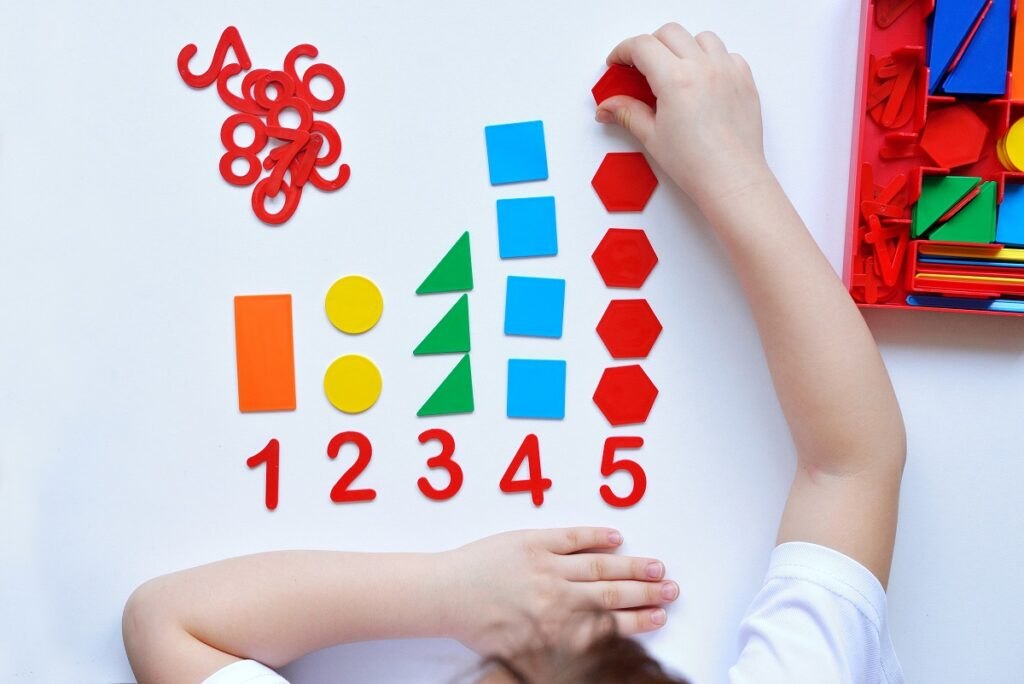Hello! If you are a parent or guardian of a small child, you probably have many questions about their development. One of the important skills to instill in the youngest is the ability to recognize numbers and count.
How to teach a child to recognize numbers and count?
This question concerns many parents when their little ones start exploring the world of numbers and mathematics. But don’t worry, in this article, we will suggest a few creative ways to teach math to your little one.
Let’s start with play.
Children learn best when they are engaged and having fun in the learning process. Use colorful blocks, puzzles, magnetic numbers, or number boards to provide your child with interactive and visual learning. Arrange the numbers together and ask your little one to hand them to you or show where the number is on the board. Creating your own counting game is also a great idea, for example, using cardboard numbers or colorful stones. Ask your child to create a specific number of towers, arrange numbers from objects, or group them. This interactive method will surely appeal to your child.
Let’s sing songs and rhymes.
Songs and rhymes are a wonderful tool for learning numbers and counting. Introduce your child to the world of mathematical rhythms and sing counting songs together. For example, “One, two, three, look up!” or “Numbers are our friends, you can count them on one finger!”. It’s worth searching online for simple, educational songs related to counting. You can sing them with your child during daily activities, such as washing hands or getting dressed. This way, your little one will quickly learn the numbers and start recognizing them.
Everyday situations.
Use everyday moments to show your child the significance of numbers and counting in life. While cooking, count the ingredients together. In the store, ask your child to hand you the right number of fruits or vegetables. While shopping, you can ask your child to give you the number of products on the shelf. You can ask them to find the number on the package, tell you how many eggs are needed for a recipe, or point out the number on a car’s license plate. This way, your little one will have the opportunity to practically apply their mathematical knowledge. It’s not just learning, but also a great way to spend time together.
Let’s play games.
Nowadays, there are many educational apps and games that help children learn math. Look for interactive programs that are tailored to your child’s age.
and offer interesting tasks related to numbers and counting. However, remember to limit screen time and maintain a balance between games and other forms of activity. Introduce children to simple board games that require counting. This could be regular dominoes or a dice game. Through play, the child practices their math skills without even realizing it.
Let’s praise the effort.
When a child starts to get familiar with numbers and counting, let’s not forget to praise them for every effort. This will strengthen their motivation to continue learning and exploring the mysteries of math.
Let’s not be afraid of mistakes.
Learning is a process, and mistakes are a natural part of that process. Encourage children to try and teach them that making mistakes is an opportunity for learning and growth. Show them that there is nothing wrong with not knowing something yet.
The most important thing to remember is that learning math should be fun and a positive experience for your child. Don’t worry if they don’t immediately succeed in recognizing numbers or counting. Patience, understanding, and regular practice are the keys to success.
Have fun together, enjoy every achievement, and support each other on the path to mathematical success!


